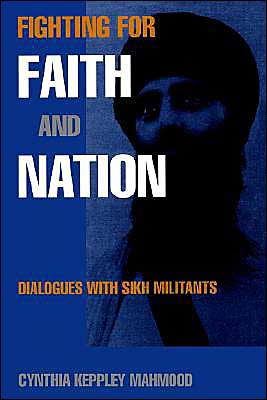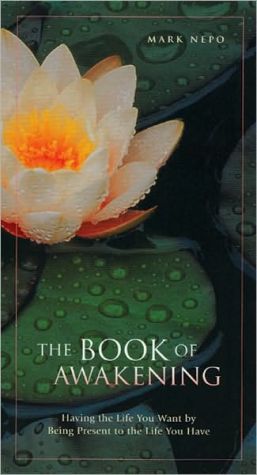Fighting for Faith and Nation: Dialogues with Sikh Militants
The ethnic and religious violence that characterized the late twentieth century calls for new ways of thinking and writing about politics. Listening to the voices of people who experience political violence—either as victims or as perpetrators—gives new insights into both the sources of violent conflict and the potential for its resolution.\ Drawing on her extensive interviews and conversations with Sikh militants, Cynthia Keppley Mahmood presents their accounts of the human rights abuses...
Search in google:
"A stunning presentation of narrative ethnography, achieving the remarkable feat of forcing the reader to enter into the world—and the world view—of those whom most of us would regard as terrorists."—Mark Juergensmeyer, UCSB Library Journal Mahmood (Frisian and Free: Study of an Ethnic Minority of the Netherlands, Waveland, 1989) undertook this investigation as a study of the anthropology of violence and based her interviews solely on Sikhs living in North America, including some in prison. The narratives relate primarily to the relationship of the individual to Jarnail Singh Bhindranwale, or the invasion of the holiest Sikh temple by the Indian government in 1984. The last portion of the book raises questions about membership in communities and violent attempts to force conformity. Mahmood discusses Edward Said, Salmon Rushdie, and Harjot Oberoi (a Sikh whose academic writings have stirred much controversy). She is careful to state that the militants within the Sikh community are a minority and raises ethical issues for an anthropologist undertaking such research. Highly recommended.-Donald Clay Johnson, Univ. of Minnesota Lib., Minneapolis
\ Library JournalMahmood (Frisian and Free: Study of an Ethnic Minority of the Netherlands, Waveland, 1989) undertook this investigation as a study of the anthropology of violence and based her interviews solely on Sikhs living in North America, including some in prison. The narratives relate primarily to the relationship of the individual to Jarnail Singh Bhindranwale, or the invasion of the holiest Sikh temple by the Indian government in 1984. The last portion of the book raises questions about membership in communities and violent attempts to force conformity. Mahmood discusses Edward Said, Salmon Rushdie, and Harjot Oberoi (a Sikh whose academic writings have stirred much controversy). She is careful to state that the militants within the Sikh community are a minority and raises ethical issues for an anthropologist undertaking such research. Highly recommended.-Donald Clay Johnson, Univ. of Minnesota Lib., Minneapolis\ \ \ \ \ From the Publisher"Highly recommended."—Library Journal\ "Mahmood brilliantly interweaves Sikh militants' narratives—their aspirations, fears, beliefs, and actions—with an understanding of India's Khalistan movement in particular and of contemporary political conflict in general. . . . Fighting for Faith and Nation provides the theoretical and methodological tools for understanding the politics of violence and militancy and the troubled concepts of nation and freedom. More important, it provides a sensitive and responsible approach to difficult and contentious issues—to matters, literally, of life and death."—Carolyn Nordstrom, University of California, Berkeley\ "A stunning presentation of narrative ethnography, achieving the remarkable feat of forcing the reader to enter into the world—and the world view—of those whom most of us would regard as terrorists. The issues this book raises cannot be ignored."—Mark Juergensmeyer, University of California, Santa Barbara\ \ \








